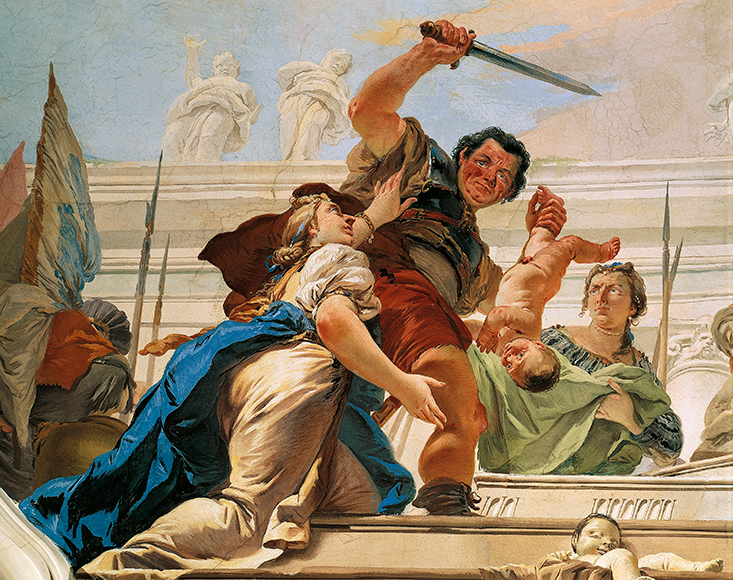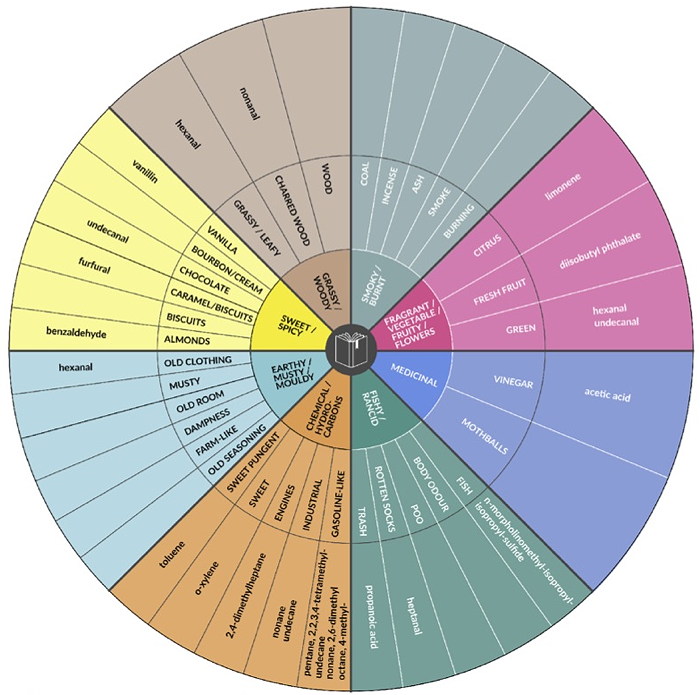via 3 Quarks Daily: Anil Ananthaswamy in Nautilus

SPLIT WISDOM Legend has it that King Solomon had the wisdom to settle complex debates, like a child’s parentage, but had a rather unwise private life. Dea / A. Dagli Orti
At the 2010 Cannes Film Festival premiere of You Will Meet A Tall Dark Stranger, director Woody Allen was asked about aging. He replied with his characteristic, straight-faced pessimism. “I find it a lousy deal. There is no advantage in getting older. I’m 74 now. You don’t get smarter, you don’t get wiser ... Your back hurts more, you get more indigestion ... It’s a bad business, getting old. I’d advise you not to do it if you can avoid it.” Creaking bones and bad digestion notwithstanding, is that really the only face of aging? Turns out, it’s not. At least for the fortunate few, old age may not be Woody Allenesque; instead old age is when they become compassionate and wise. Yes, wise.
Continue reading
=============================
The genetics of photosensitive sneezing, explained
via Boing Boing by Andrea James

If you’re among the one in four people who sneeze when you move from a dark place into the sunlight, this nifty little explainer from a fellow traveler gives a great overview of causation theories over the millennia. Turns out it is just one transposed letter in the second chromosome that causes the effect.
Continue reading
=============================
More Cancers Occur by Random Chance Than for Any Other Reason, Study Finds
via Big Think by Philip Perry
We usually attribute cancer to inherited genes such as the BRACA1 or BRACA2 mutations, responsible for breast, ovarian, and prostate cancer. Or else, a lifestyle choice like smoking or something to do with the environment, say exposure to pollution or radiation. A new study published in the journal Science however, makes a strong case for random chance as the biggest driver.
Continue reading
=============================
How a Spanish chicken farmer became the greatest double agent of World War II
via Boing Boing by Futility Closet

In 1941, Catalonian chicken farmer Juan Pujol made an unlikely leap into the world of international espionage, becoming a spy first for the Germans, then for the British, and rising to become one of the greatest double agents of World War II. In this week’s episode of the Futility Closet podcast we’ll describe Pujol’s astonishing talent for deceiving the Nazis, which led one colleague to call him “the best actor in the world’.
Continue reading
=============================
Fielding and fake news
via OUP Blog by Thomas Keymer

Anonymous Interior of a London Coffee House, 1668. Public Domain via Wikimedia Commons.
Fake news is not only a phenomenon of post-truth politics in the Trump era. It’s as old as newspapers themselves—or as old, Robert Darnton suggests, as the scurrilous Anecdota of Procopius in sixth-century Byzantium. In England, the first great age of alternative facts was the later seventeenth century, when they clustered especially around crises of dynastic succession. The biggest political lie was the widely believed Popish Plot of 1678, a fictitious Jesuit conspiracy to assassinate King Charles II that played into the Whig campaign to exclude Charles’s Catholic brother from succession to the throne. Conspiracy theorists of all political stripes got in on the act. At one point in his history of the period, David Hume writes wearily that “this was no less than the fifteenth false plot, or sham plot, as they were then called, with which the court, it was imagined, had endeavoured to load their adversaries.”
Continue reading
=============================
Saving Endangered Data From Ancient Rome To Trump's America
via ResearchBuzz Firehose: Forbes Science by Sarah Bond

From San Francisco to New York City, groups of scientists, librarians, researchers and concerned Americans have rushed to preserve federal data and citations that have begun to disappear from government websites. Such efforts have culminated in a series of independently organized events across the country dubbed Endangered Data Week.
Believe it or not, this isn’t a new problem. Even in Ancient Rome, political leaders were fond of destroying records and documents that painted a picture of a reality they couldn’t accept.
Continue reading
=============================
This Historic Book Odour Wheel pinpoints scent of ancient tomes
via Boing Boing by Andrea James

The smell of old books is instantly recognizable but hard to describe. Thanks to mass spectrometry and good old fashioned smell tests, University College London researchers have created a Historic Book Odour Wheel.
Continue reading
=============================
A Short Analysis of Michael Drayton’s ‘Since there’s no help, come let us kiss and part’
via Interesting Literature
A summary of a classic poem
Michael Drayton was a contemporary of William Shakespeare – he was born a year before Shakespeare, in 1563 – and, like the Bard, he was a Warwickshire lad. But although he wrote a great number of poems – including a long verse travelogue about England – Drayton’s poetry is not read much now. That is, with the notable exception of this one sonnet, beginning ‘Since there’s no help, come let us kiss and part’, which is widely anthologised and reasonably well-known. The poem is deft enough to make a little closer analysis of its language rewarding and useful.
Continue reading
=============================
You Really Can Judge People by the Company They Keep
via Big Think by Scotty Hendricks
There is an old adage, “take stock of the company you keep”. While there are many reasons why we might wish to be knowledgeable about the people we associate with, a recent study gives us a potentially new reason. One that might give a few of us pause. As it turns out, we are more tolerant of people who have similar negative personality traits as us.
=============================
Peter Vannes, Henry VIII and early modern marriage
via The National Archives Blog by Claire Kennan
Peter Vannes (c.1488-1563) was a diplomat and collector of papal taxes in England under four successive Tudor monarchs: Henry VIII, Edward VI, Mary I and Elizabeth I.
Vannes first arrived in England from Italy in 1513 and by the following year he was working for Cardinal Wolsey. His career began in earnest in 1527 when he visited the pope with Wolsey, working alongside him as a key figure in the divorce negotiations between Henry VIII and Catherine of Aragon.
Continue reading
No comments:
Post a Comment